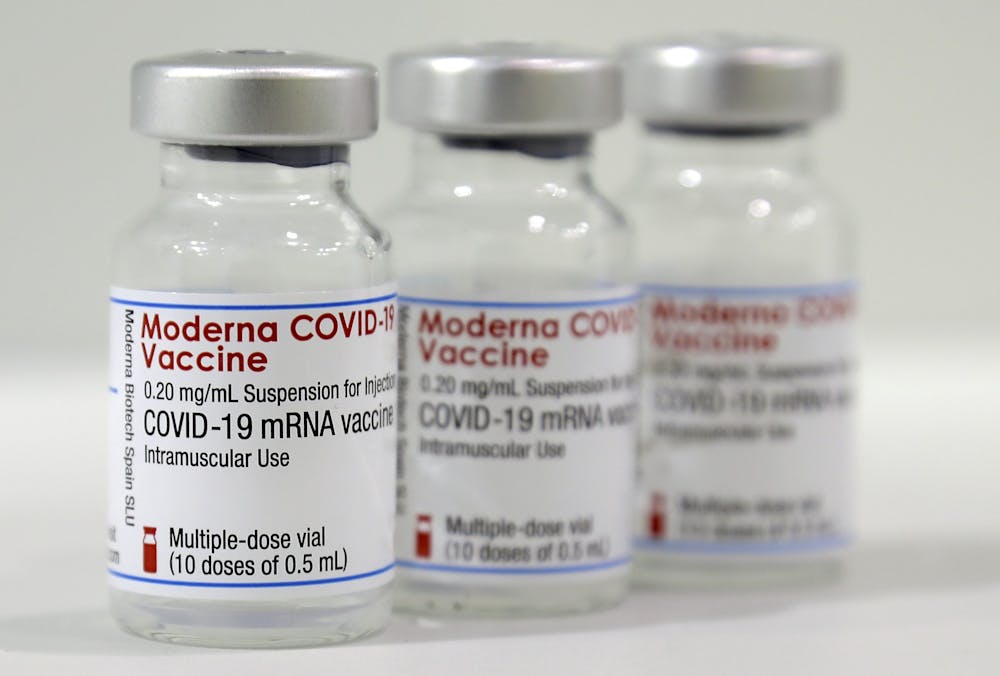COVID-19 positivity rates have decreased for the past several months, but the rates are once again on the rise for students in K-12 schools in Indiana.
To combat rising positivity rates, multiple COVID-19 vaccines such as Pfzier and Moderna were made available to adults. Now, young children are also able to be vaccinated. The vaccine most recently became available for those aged 5 to 11.
Chandy John, professor of pediatrics at IU, said vaccinating children against the virus should not raise concern and can benefit every member of a community.
“Vaccination in children five years and above is very safe and very effective,” John said. “Vaccinating a critical component of kids, and it’s somewhere upwards of 80% of all kids, is going to substantially reduce the number of cases of COVID-19 and also very likely reduce the risk of transmission.”
COVID news: Merck & Co.’s pill approved to treat COVID-19
He said if more children are vaccinated, life can go back to the way it was before the pandemic. For example, he said, school closures could stop.
“It’s a really great way to first of all prevent severe disease, and that’s in kids, which is an issue and a real concern, but also to normalize our life by stopping disruption of school for cases of COVID-19,” John said.
Nir Menachemi, professor of health policy and management at IUPUI, said vaccinating against COVID-19 is just like vaccinating against other diseases. He recently had his own 11-year-old vaccinated, he said.
“You can reduce the risk of having to have a bad outcome from hospitalization or death by doing this,” Menachemi said. “That’s really the purpose of vaccines, it’s to prevent illness and mortality associated with vaccine-preventable diseases. Now, COVID is one of those things.”
Menachemi said vaccination really comes down to the health and safety of the child, and it is something a parent should consider doing for those reasons.
“At the end of the day, I think vaccinations for COVID on young kids are no different really than wearing seatbelts and putting children in car seats,” Menachemi said.
Jessica Calarco, associate professor of sociology, said she has found, through studying a group of families before and during the pandemic, that while about 90% of kids are vaccinated against other diseases, such as measles or mumps, there are much lower numbers when it comes to COVID-19.
ICYMI: Local elder care facility will lead ‘Stuff-A-Bus’ food pantry event Saturday
Calarco said she thinks a lot of the hesitancy came from messaging early on in the pandemic such as people saying that COVID-19 was not a serious threat to children.
“Those kinds of reassuring messages led many parents, particularly parents who see their own kids as healthy, to say ‘You know what, the vaccine isn’t necessary for my child,’” Calarco said.
She said she thinks it is easy to criticize and vilify parents, especially mothers, who are skeptical about the vaccine. However, this ignores all of the expectations put on parents to protect their children from health risks, which can often push them to become more vulnerable to information, she said.
“The more pressure that we put on families and on moms to avoid any potential threat to their children, the more attuned they’re going to be to misinformation and disinformation about things like vaccines,” Calarco said.
Calarco said vaccinating children is a step taken to benefit people beyond just the individual child.
“We know that kids can get very sick from COVID,” Calarco said. “But we also know that beyond that, kids can also play a role in transmitting the virus, in terms of getting grandparents sick, getting parents sick, infecting other kids in their community.”




